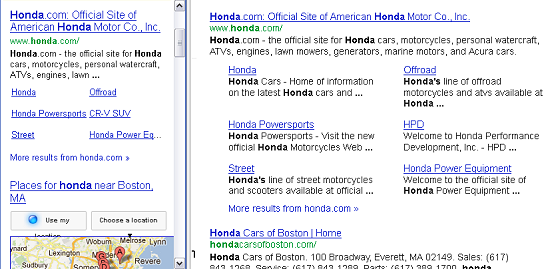Untangling Your Mobile Metrics With Better Redirects
A lot of mobile sites owners have trouble making sense of their metrics. In some extreme cases, they can’t track referrals from any website besides their own desktop site, which of course is sending visits their way whenever someone approaches from a mobile phone. The trouble is potentially two-fold: not only is it hard to […]
A lot of mobile sites owners have trouble making sense of their metrics. In some extreme cases, they can’t track referrals from any website besides their own desktop site, which of course is sending visits their way whenever someone approaches from a mobile phone.
The trouble is potentially two-fold: not only is it hard to track visitors, but once Google’s December changes take effect, it may be hard to attract those visitors in the first place.
One common source of this tracking problem is the series of redirects that make-up the desktop-to-mobile switchboard.
Three aspects of this switchboard are worth checking:
- 301 redirects. SEO’s are no stranger to the 301 redirect. But in a mobile situation, you might have your doubts. If the web server is 301-ing mobile traffic to your m-dot URLs, does that disrupt the indexing process for the desktop site? And what about link equity? Actually, Google expects this pattern and it’s perfectly safe, but only if you…
- Manage user agents. To manage mobile traffic, you need to know for sure that they’re on a phone. User agents – ID strings that identify your web browser – are the industry-standard technique for sniffing-out a phone. To make this work properly for mobile search, your user agent list should be complete and up to date. This should include the defacto “devices” that GoogleBot-Mobile uses to perform its mobile indexing. If you don’t treat GoogleBot-Mobile like a phone, you’ll accidentally serve-up your desktop page, possibly getting dinged for mobile performance factors like long load time.
- One-to-one mapping. Redirects can be seen as the roads connecting your pages, and how your roads are laid-out can have a significant effect on how users and engines get around your site. GoogleBot-Mobile looks for redirects that connect matching pages, and will make a point to show your mobile URL as your search listing. If your redirects don’t map to specific pages (i.e. sending everyone to the mobile home page) you run the risk of never showing “m.website.com” in the SERPs. It’s still too early in the game to cite studies on this, but it stands to reason that a lack of m-dot URLs will quickly become a quality signal to both user and engines that your site isn’t mobile-friendly.

Google still shows desktop URLs for both mobile searches (left) and desktop searches (right), but the switchboard action that helps send users to the right destination can sometimes result in a loss of tracking data.
One last comment about 301 redirects, and why they’re especially important in this context. A lot of web developers bemoan the SEO industry’s (and Google’s) insistence on 301 redirects as the one best option for managing traffic. But for mobile tracking it’s even more important, because of the way HTTP server codes are handled.
301’s Keep Your Data Connected
With a 301, the referring URL that got users to Page-A is automatically copied over to Page-B’s referrer. From a metrics perspective, this is a great convenience: instead of having to track how a user hopscotched through the redirect, you can just look at the 1) real source of the traffic, and 2) the real landing page of the user.
With other types of redirects (302, JavaScript, meta-refresh) no such copying of the referrer data is performed. Therefore the data is lost – and that could be why you only see your desktop site in your traffic data. You’re only seeing the hopscotch, instead of the true source of your mobile traffic.
Bottom line, these steps will go a long way toward cleaning-up your metrics, and help you to better weigh the mobile site’s impact. They’ve been tested in both Google Analytics and Omniture to good effect, but if you’ve had experiences with other tracking tools (good or bad) please share them in the comments.
Contributing authors are invited to create content for Search Engine Land and are chosen for their expertise and contribution to the search community. Our contributors work under the oversight of the editorial staff and contributions are checked for quality and relevance to our readers. The opinions they express are their own.
Related stories